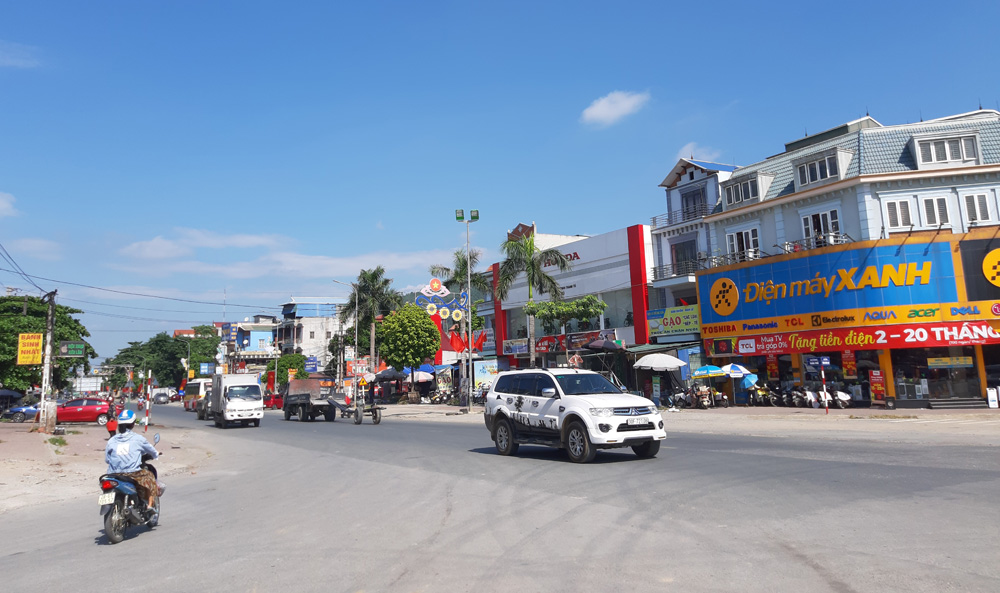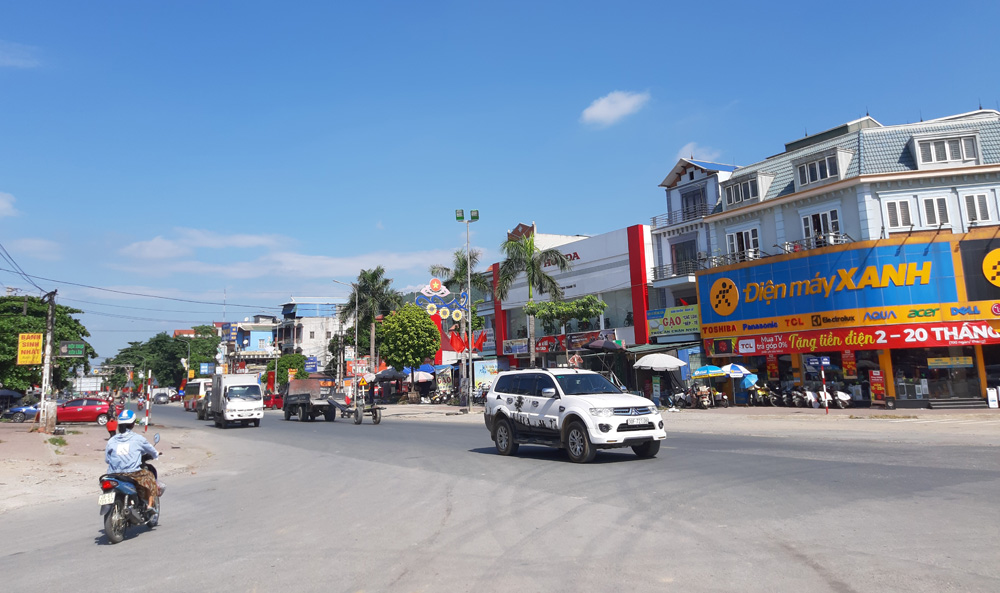
(HBO) - Hoa Binh province’s Luong Son district has set a target of meeting criteria for a township by 2025, according the resolution at the congress of the district’s Party organisation. The realisation of the target requires the determination and efforts by local authorities and people, said Hoang Viet Hai, Secretary of the Luong Son township’s Party Committee.
 A corner of Luong Son
township (Luong Son district).
A corner of Luong Son
township (Luong Son district).
The
township has been given a facelift in recent years. Due attention has been paid
to urban infrastructure, roads and support works. Pavements and lighting systems
were improved while roads were built as planned, thereby improving local
landscapes.
Planning
and management have taken shape and been able to address the issue of trading
activities along roads. Many residential areas were built synchronously, notably
Dong Duong and Luong Son housing projects. As more stores and malls were built,
the life of local residents has been also improved.
Luong Son
district over the recent past has implemented Resolution No.06 of the
provincial Party Committee on resources mobilisation for infrastructure in the
town of the same name, helping it to fulfil criteria to become a township.
In late
2019, the Ministry of Construction recognised Luong Son town and its expanded
areas as meeting Type IV urban area criteria. The area covers the town and a
zone spanning over 112 sq.km with a population of more than 51,000. It
comprises two communes of Hoa Son and Nhuan Trach of 43 sq.km, with 38,000
people, and Lam Son, Tan Vinh and Cu Yen communes spanning over 68 sq.km in the
outskirts with more than 13,000 people.
Serving as
the district’s political, administrative, economic, cultural and social hub for
years, Luong Son town, under the leadership of the local authorities, has
bolstered dissemination and investment in urban development and management.
Due regard
has been paid to planning and development of residential and new housing areas
in the locality, along with the transition of economic structure towards the industrial
and services sectors.
Efforts by
the Party Committee and residents of Luong Son town and expanded areas
attributed to socio-economic development, as economic growth rate, State budget
collection and per capita income saw increases while the poor household rate fell
to 0.51 percent. The rate of urbanisation also surpassed the set target.
The Resolution
of the town’s Party Organisation’s congress aims to raise per capita income to
89 million VND (3,840 USD) and help Luong Son meet urban area criteria at the
ward level by 2025./.
According to data from the Hoa Binh Provincial Party Committee, the industrial production index for the first six months of 2025 is estimated to have increased by 20% compared to the same period last year. This marks the highest year-on-year growth rate for this period since 2020.
In the first six months of 2025, Hoa Binh province’s export turnover was estimated at 1.145 billion USD, marking an 18.11% increase compared to the same period in 2024. Import turnover was estimated at $ 804 million, a 17.15% increase, which helped the province maintain a positive trade balance.
The lives of the ethnic minority farmers in Tan Lac district have gradually improved thanks to the new directions in agricultural production. This is a testament to the collective strength fostered through the professional associations and groups implemented by various levels of the district’s Farmers’ Union.
With the motto the "product quality comes first,” after nearly one year of establishment and operation, Muong village’s Clean Food Agricultural and Commercial Cooperative, located in Cau Hamlet, Hung Son Commune (Kim Boi district), has launched reputable, high-quality agricultural products to the market that are well-received by consumers. The products such as Muong village’s pork sausage, salt-cured chicken, and salt-cured pork hocks have gradually carved out a place in the market and they are on the path to obtaining the OCOP certification.
In the past, the phrase "bumper harvest, rock-bottom prices" was a familiar refrain for Vietnamese farmers engaged in fragmented, small-scale agriculture. But today, a new spirit is emerging across rural areas of Hoa Binh province - one of collaboration, organisation, and collective economic models that provide a stable foundation for production.
Maintaining growing area codes and packing facility codes in accordance with regulations is a mandatory requirement for agricultural products to be eligible for export. Recently, the Department of Agriculture and Environment of Hoa Binh province has intensified technical supervision of designated farming areas and packing facilities to safeguard the "green passport" that enables its products to access international markets.



 A corner of Luong Son
township (Luong Son district).
A corner of Luong Son
township (Luong Son district).